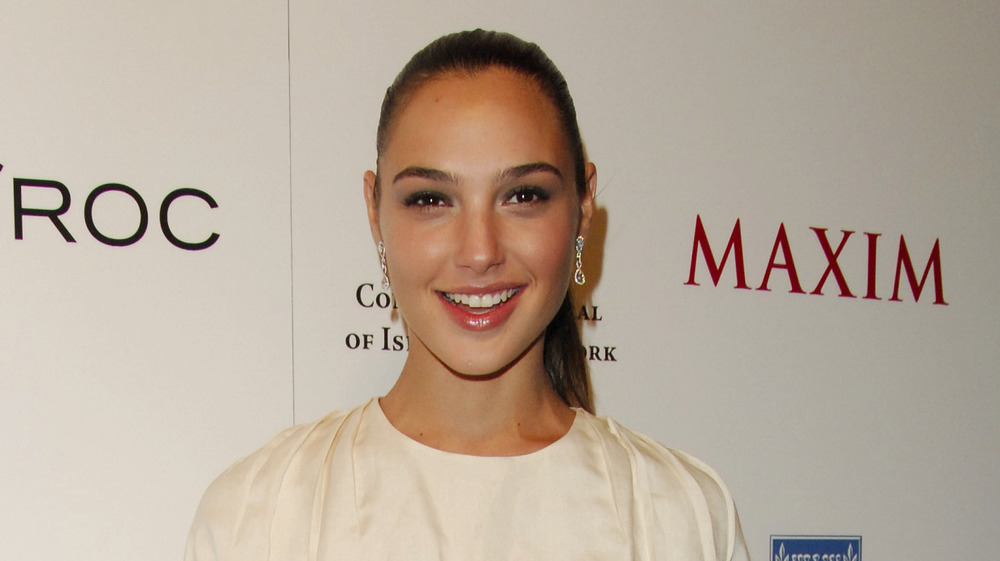Why Gal Gadot's Maxim Shoot Sparked Controversy
The action genre has long been dominated by male leads (think Superman, Batman, and James Bond), but that seems to be changing, in part thanks to Gal Gadot. In 2017, the Israeli-born actress became the first female superhero to headline a major motion picture in over a decade with the release of Wonder Woman (via Hollywood Reporter).
Not only that, but Variety reported that the film was "the highest grossing live-action film by a female director and the highest grossing superhero origin film of all time," raking in a staggering $822 million worldwide. With all this success under the titular character's shiny, gold belt, a sequel was only a matter of time. And indeed, Wonder Woman: 1984 dropped on HBO in December 2020.
But like many stars, Gadot's meteoric rise to the top wasn't without a few controversies along the way. Prior to her breakout role in 2009's Fast & Furious, the actress made headlines for her participation in a Maxim photoshoot. While it was intended to promote tourism in her home country of Israel, the spread ended up attracting attention for the wrong reasons. But why is this the case?
Gal Gadot's Maxim spread was branded 'pornographic'
Gal Gadot began her path to stardom when she was crowned Miss Israel in 2004, launching her career as a model. She took a brief hiatus to complete two years of mandatory service in the Israeli army, per Glamour, but her experience in front of the camera came in handy when she and other female members of the Israel military posed in bikinis for a 2007 Maxim photoshoot. The spread, which called Gadot "flawless," and the women of the Israeli Defense Forces "the world's sexiest soldiers," sparked immediate controversy with Israel's Knesset.
According to The Guardian, the country's female politicians criticized the foreign ministry for "resorting to pornography to promote Israel abroad." Zahava Gal On, leader of the Meretz party, expressed her dismay that "the New York consulate thinks that Israel's relevance will be expressed by the use of naked women," while Colette Avital of the Labour party condemned the images as "a pornographic campaign to encourage tourism." Despite the backlash, Maxim maintained that it was pleased with the results of its collaboration with the Israeli consulate (via The Guardian), and Gadot backed the sentiment.
In 2011, the star told Forward that she wasn't fazed by the images. "When you are a model, your job is to take pictures in a bathing suit. There's nothing provocative about that," she explained. If there's anything we've learned from this controversy, it's that Gadot knows how to bring the drama both on and offscreen!


